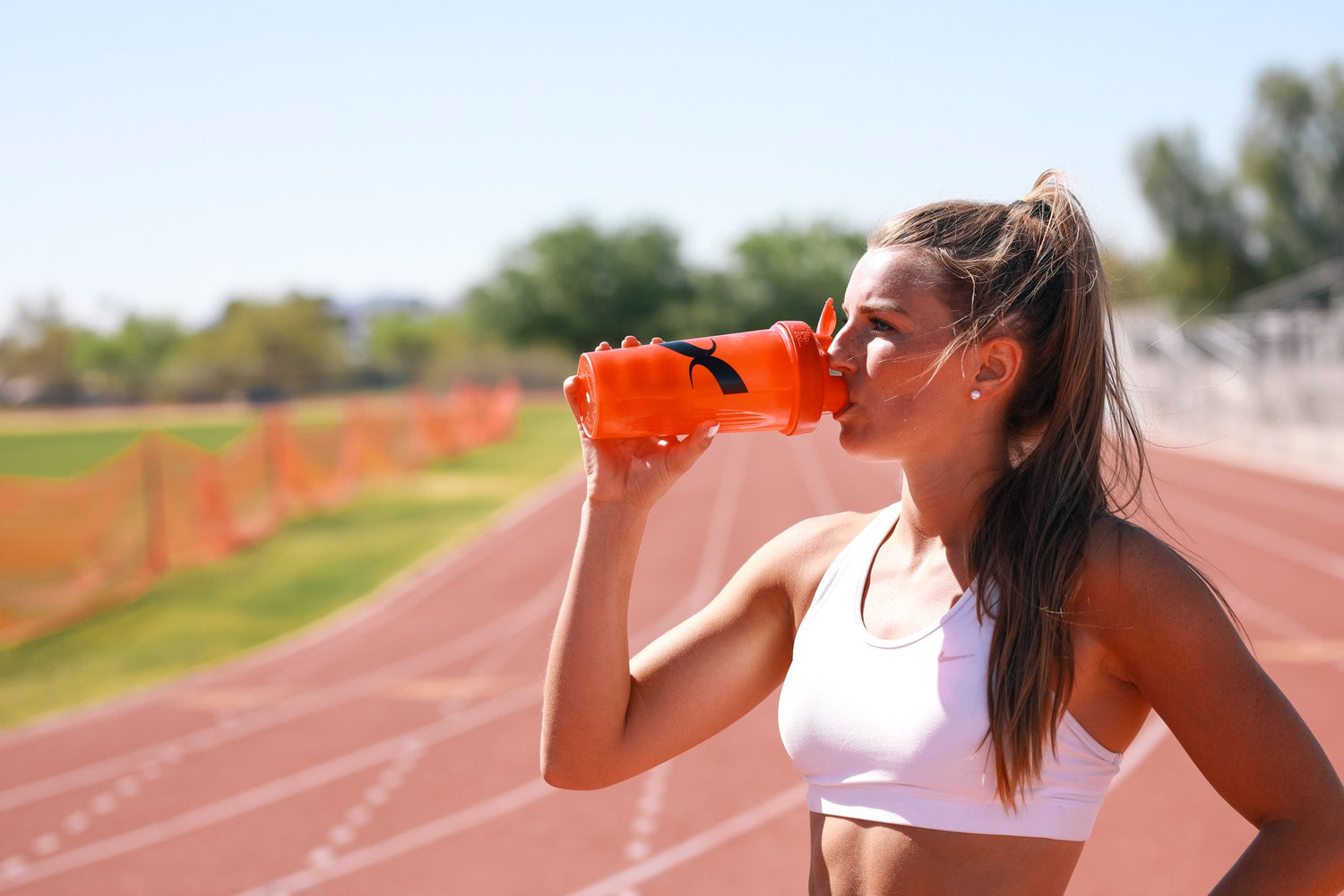Sports nutrition puts big premiums on amino acids, proteins, and sometimes stimulants in pre-workout compounds. These can certainly have effects on performance, and optimized nutrient intake will improve anyone's ability to recover from strenuous training. But often overlooked are non-caloric substances that fundamentally support our body's functions. Just as important as fueling your metabolism with carbohydrates and proteins is ensuring proper hydration. Euhydration is a state of neutrality, neither over or under-hydrated. There are medical complications associated with both hypohydration (or dehydration) and hyperhydration (excessive fluid intake). Existing in a state of balance can become complicated in adverse climates or during difficult exercise. Furthermore, it appears popular sugary beverages such as soda and traditional sports drinks can have a dehydrating effect, despite increasing fluid intake <1>.
Dehydration Negatively Impacts Performance
Severe dehydration (>5% of body mass) can have serious health consequences if not addressed quickly, but is unlikely to occur in normal activities or even normal training regimens. However, as little as 2% of fluid loss can lead to a decrease in performance <2>. Middle to long distance runners with 2-3% total fluid loss demonstrated a 3-5% decrease in race performance, worsening as duration lengthened <2>. That may not sound like a lot, but here's what you're looking at:
Genzebe Dibaba is the world record holder in the Women’s 1500m, with a time of 3:50.07. At 115lbs, Genzebe only needs to lose 2.3lbs of fluids, roughly 1L, to be within that aforementioned 2% threshold. This can result in a 6.9 second increase on her World Record Time. In a race scenario, 6.9 seconds would have taken Genzebe from her 1st Place at this year's Indoor Championships, to 4th. This decrease in performance can grow exponentially in a longer race scenario or during a normal training session of multiple hours.
While acute dehydration doesn't significantly affect performance in shorter duration athletic events such as power sports like throwing, weightlifting, or even sprinting, it can be seriously detrimental to those athletes' work capacity and curtail a training session. A 45% decrease in work capacity was demonstrated with a 2.5% of bodyweight fluid loss <3>. Imagine the cumulative effect of cutting your training time in half over the course of preparation for any competitive event.
Balanced Hydration with Extreme Hydro-X
Drinking enough water throughout the day to recover your lost fluids is the first and most important step. But hydration is more than simple fluid volume. In fact hyponatremia, excessive fluid intake, is a very common endurance runners. Rather, replenishing the electrolytes sodium, potassium, magnesium, and calcium lost during perspiration or excretion is vital to maintaining cellular function. These minerals allow the body to regulate and function, carrying electric charge to skeletal muscle and moving fluids throughout the body. This is precisely why Extreme Hydro-X is loaded with electrolytes to support what the body loses throughout the day and prevent any loss of performance during strenuous training.
Extreme Hydro-X compliments an electrolyte blend with 1500mg of Lactate, the body's preferred fast fuel source during high intensity efforts. But it takes combatting the symptoms of cramping associated with dehydration to a new level with the patented hydration technology, Sustamine. Sustamine is a dipeptide that increases blood plasma glutamine concentration <4>. This is important because when glutamine is more bioavailable, it can counteract the elevation of ammonia levels in the blood <5>. Elevated ammonia in the blood is associated with increased fatigue and diminishing ability to perform exercise.
This multifaceted approach to combating dehydration make Extreme Hydro-X ideal for pre or intra-workout supplementation, but it can be utilized any time throughout the day with water, especially during summer, in warmer climates, or by those working outdoors.
References:
Garcia-Arroyo, FE et. al (2016). Rehydration with soft drink-like beverages exacerbates dehydration and worsens dehydration-associated renal injury. American Journal of Physiology-Regulatory, Integrative and Comparative Physiology. https://www.physiology.org/doi/10.1152/ajpregu.00354.2015
Armstrong, LE et. al (1985). Influence of diuretic-induced dehydration on competitive running performance. Medicine and Science in Sports and Exercise. https://journals.lww.com/acsm-msse/pages/articleviewer.aspx?year=1985&issue=08000&article=00009&type=abstract
Sawka, M.N., Young, A.J., Cadarette, B.S. et al (1985). Influence of heat stress and acclimation on maximal aerobic power. Europ. J. Appl. Physiol. https://doi.org/10.1007/BF00422841
Hoffman, JR et. al (2010). Examination of the efficacy of acute L-alanyl-L-glutamine ingestion during hydration stress in endurance exercise. Journal of the International Society of Sports Nutrition. https://doi.org/10.1186/1550-2783-7-8
Carvahlo-Peixoto, J et. al (2007). Glutamine and carbohydrate supplements reduce ammonemia increase during endurance field exercise. Applied Physiology, Nutrition, and Metabolism. https://doi.org/10.1139/H07-091









Leave a comment
This site is protected by hCaptcha and the hCaptcha Privacy Policy and Terms of Service apply.